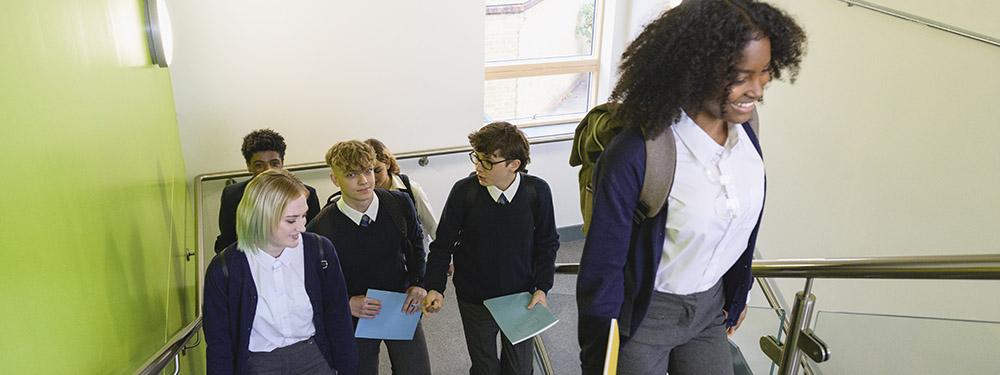
Caludon Castle has always been a diverse school, situated in the north of Coventry. It’s not an easy process for a school to look into itself and see if, and how, racism is a problem. The difficulty comes from the structural and societal racism that impacts all of us (particularly challenging for white people to recognise), but also from the uncomfortable ‘truths’ that might be brought forward. Particularly tough when the school perception previously was that we were doing things well!
The school has decided to take the approach that if Black students say they experience racism here, we won’t try to deny it. Instead, we will treat their perception as a reality, and we will work with those students to try and change it. That has led to some serious reflection and the beginning of an expanded stream of work and projects.
There has arguably been a growing divide in UK society recently, which has led to increased incidences of racism, islamophobia, HBT phobia and identity-based violence and abuse. This was something we were working to change prior to lockdown when we staged the first ever Black History Month event in school. As the restrictions began to be lifted, we facilitated the forming of a student-led group to foreground all aspects of diversity and equality. Under the leadership of sixth form students, our existing Spectrum LGBT+ group will be joined by two new groups: a ‘Positive About Disability’ group and a group to highlight and celebrate race, ethnicity and cultural identities.
Hannah writes,
As a Black student it can be thoroughly alienating and emotionally exhausting to experience overt and covert racism on a regular basis but perhaps seeing the way this was hurting my younger sister a few years below was the biggest catalyst prompting me to take action. I realised that I had to leave Caludon a better school for her and for all the other vulnerable students of colour for whom school is much less a place of safety and refuge than it is for their white counterparts. As the Diversity and Equality Team, one of our main goals is to make Caludon Castle a better, safer space. We plan to utilise assemblies and tutor periods as a way of facilitating productive conversations in ways that feel most useful. As students we have sometimes been in the position of listening to an assembly that feels out of touch and painfully didactic.
But at the same time, we are very conscious of not neglecting the students of colour who need somewhere that can act as shelter and a space to breathe and so, much of our Black History Month programme was centred around this aim. We organised an art and poetry contest to give a space to these voices that are often unheard, making bulletins and posters reflecting these foundational parts of our history in addition to assemblies and tutor periods. However, this change is not something we want to restrict to just Black History Month; our history is dynamic and far more complex than can be contained in a singular month, so we plan to continue to organise programmes like these that give space and voices to our students of colour in creative and challenging ways. We want to continue creating conversational spaces where we platform students of colour, as well as finding ways to enter more school spaces such as through a read-a-thon and events working with other branches of the school.
Ayomide writes,
Earlier this year, I was eager to join the Diversity and Equality Group because I, like many other students, understand what it is like to experience discrimination. Despite having over five years of experience with the different branches of student leadership, I felt like none had given me the opportunity to engage with other like-minded students who also yearned for a safe space in which students from all different backgrounds are comfortable enough to fully express themselves. When I leave Caludon in two years, I want it to be commonplace for all students regardless of their identities to know that they are to be embraced and celebrated rather than marginalised, like I was.
Currently, my role with the REC (Race, Ethnicity and Culture) Group involves overseeing the different events we held to commemorate BHM such as delivering assemblies to different year groups, organising a ‘Show Racism the Red Card Day’ to advocate for an anti-racist learning environment and an open-invite celebration for all students to learn more about the different cultures at our school.
Recently, I was also given the opportunity to watch two year 8 drama lessons where students performed scenes based on historical black British history events including the ‘Empire Windrush’ and the Bristol Bus Boycott. It was wonderful to see the different techniques performed by students including textual analysis and improvisation and how mature and empathetic the students were about the struggles faced by previous generations.
This article first appeared in the Spring edition of The Journal: Log in to The Exchange to read the full version.
